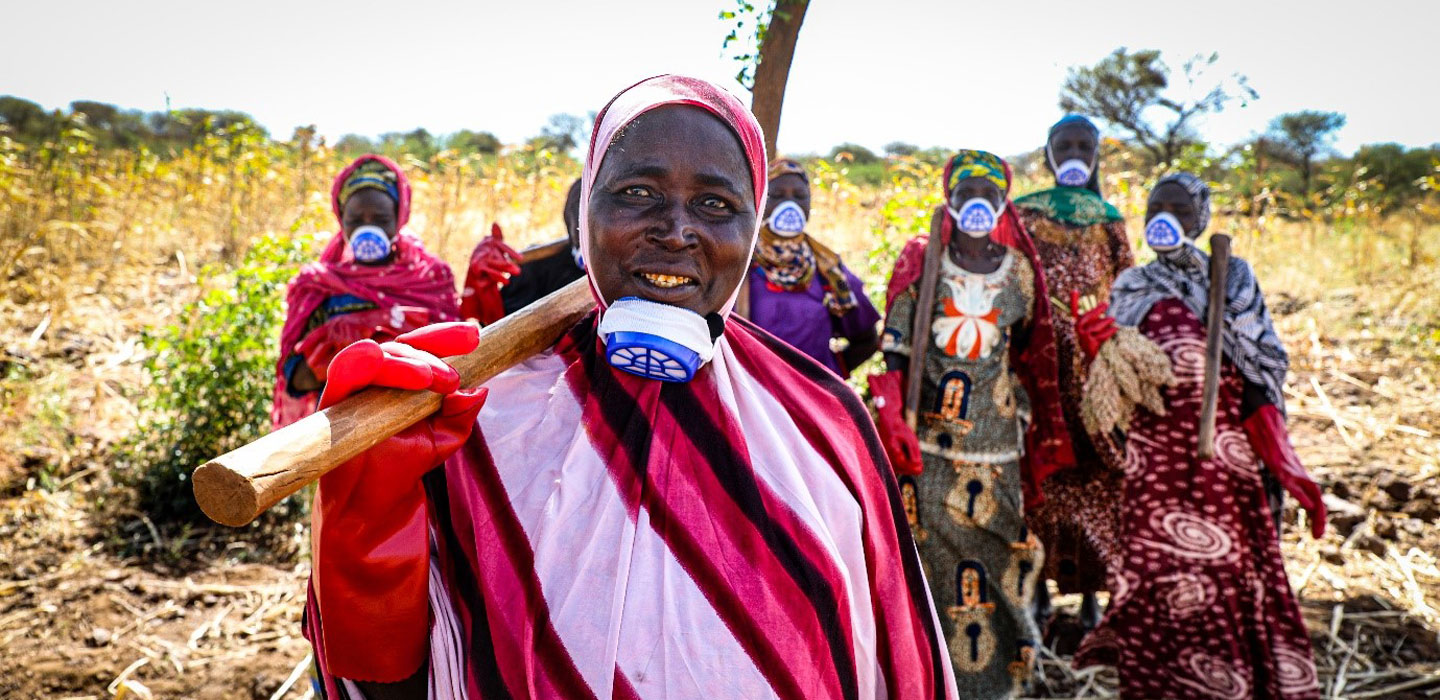Her land, her rights: How land ownership can transform the lives of women - and hold back desertification - in Niger
IFAD Asset Request Portlet
Asset Publisher
Her land, her rights: How land ownership can transform the lives of women - and hold back desertification - in Niger
Estimated reading time: 2 minutes
Almost half of the global agricultural workforce is female – yet less than one in five landowners worldwide are women. Why? Partly because in more than 100 countries women are denied the right to inherit their husband’s property due to religious or traditional practices.
Fifty-one-year-old Indo from Niger learnt this the hard way. When her husband died, traditional practices prevented her from inheriting his land, even though she had farmed it for years. From one day to the next, Indo found that she had not only lost her husband, but also the family's main livelihood and food source. And the longer the land lay untouched, the more it suffered the effects of drought and desertification.
Indo raised her case at the Dimitra Club – a local community listening club initiated by the Joint Programme on Accelerating Progress towards Rural Women’s Economic Empowerment (JP RWEE).
There, members seek solutions to their daily problems, acting together to bring about societal change. In the Dimitra Club, Indo learned about the government’s land policy, under which women have the right to inherit and own land.
The group encouraged her to take her case to the local land commission, where she successfully secured a land deed document in her name and full property rights.
No woman left behind
Women are key to the health of the land, yet they often face significant barriers in securing land rights, limiting their ability to prosper and protect the land.
As extreme weather worsens, and the number and duration of droughts increases, giving women land rights allows them to better protect their land from desertification.
JP RWEE helps women, like Indo, do this by providing them with training in climate resilient agriculture techniques, including soil reclamation, bio-pesticides and sustainable field preparation.
Indo also received a pastoral kit from the programme, including two goats. With their manure, she enriched her soil and more than doubled her harvest size. She's now growing enough millet, peanuts, cowpeas and sesame seeds that she can not only feed herself and her family, but she can also sell a portion to pay for her children's school fees and donate another portion to the community.
Investing in climate resilience
Two-thirds of Niger is desert – and growing. In 2021, it was ranked as the fourth most climate vulnerable country in the world. Increased desertification over the past 30 years has led to chronic food insecurity and exacerbated poverty.
Women are key to addressing this. That's why the JP RWEE will keep helping rural women secure their livelihoods, rights and resilience.
It's time for women like Indo to be at the forefront of global land restoration and drought and desertification resilience efforts. For this to happen, the world must continue to invest in women’s equal access to land – a direct investment in their future is a direct investment in the future of humanity.
The JP RWEE is a partnership initiative between FAO, IFAD, UN Women and WFP and is being implemented in Nepal, Niger, the Pacific Islands, Rwanda, Tanzania and Tunisia.
Publication date: 16 June 2023